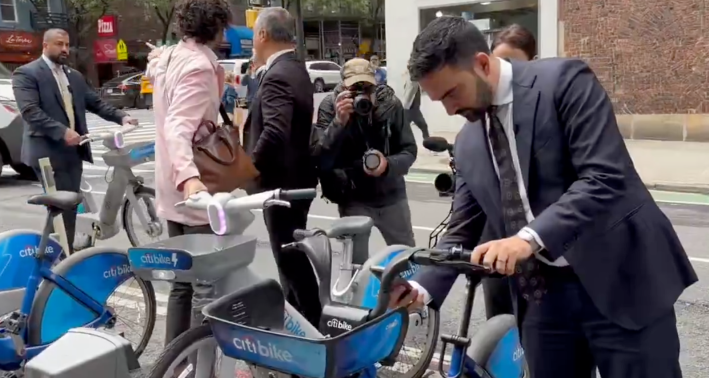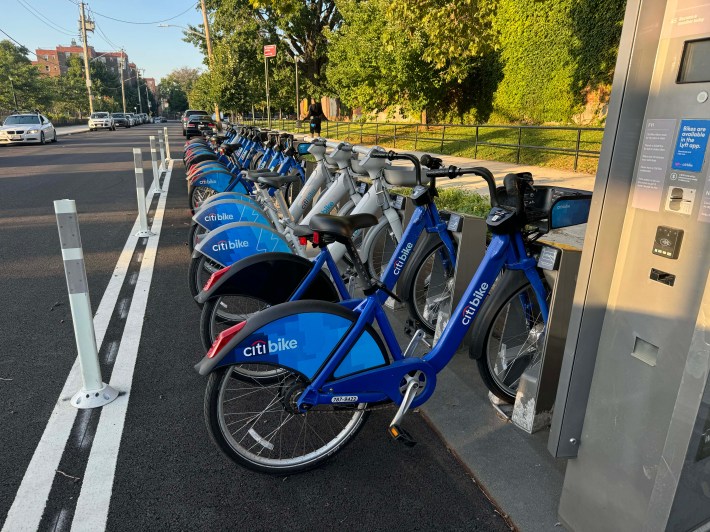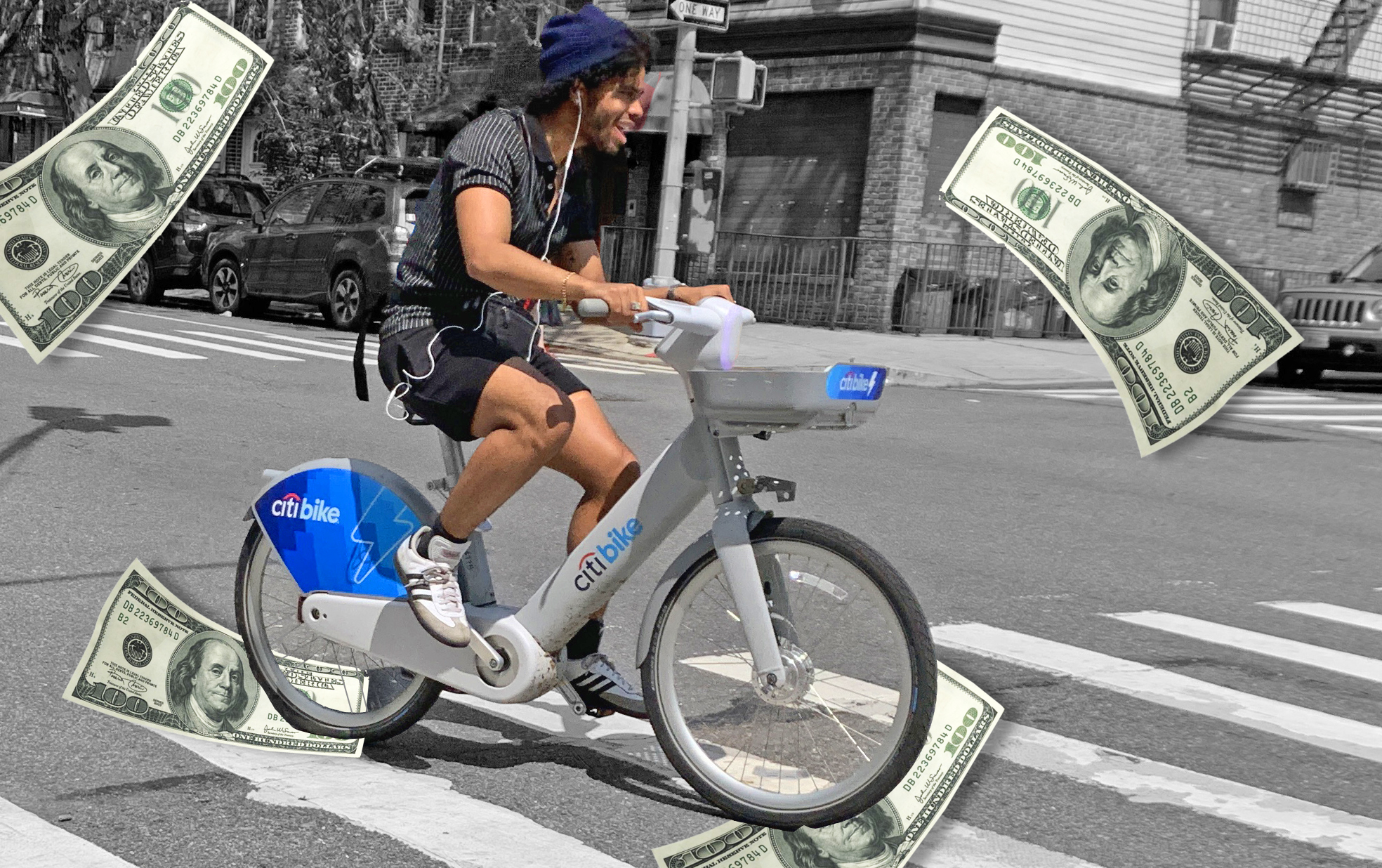The ride is too damn high.
New York City's Citi Bike system costs more to ride than any other major bike-share system in the United States, Canada or Europe — despite astronomical geographic and ridership growth raking in more and more money for the city's licensed operated Lyft, according to a new report from the city's Independent Budget Office.
Per the IBO, the price of a yearly Citi Bike membership has grown by 77 percent in inflation-adjusted dollars since the bike-share program launched 2013, when a yearly membership cost $95. Membership today costs $220.
To get a sense of how that stacks up to systems in other big cities, IBO bean-counters compared Citi Bike's pricing and ownership structures to seven other bike-shares around the world in Chicago, Washington, DC, San Francisco, Los Angeles, Montreal, London and Paris.
The second-most expensive comparable system in the budget watchdog's report was London's Santander Cycles, which comes in at $161 per year.
"Casual" Citi Bike users, which the IBO defined as people who use single rides or single-day passes to rent bikes, also shell out more compared to their peers around the globe, the report said. Casual riders pay $10.69 for a 15-minute e-bike trip — the next highest cost for the same ride in another city is at $8.49 on San Francisco's Bay Wheels system.

The IBO did note, however, that the city's contract with Lyft specifically calls for non-members to pay at least 50 percent more than members and carry the brunt of the costs for the system.
"[The city] and Lyft may have put this 50 percent price differential into place as a way to ensure membership remained an attractive option, or to shift costs towards tourists and visitors, who are more likely to be single ride or day pass rentals," the report said.
Yet while that pricing structure in theory shifts costs onto tourists, "people curious about the service may be discouraged from trying bike-share," the IBO report.
The budget watchdog, which operates independent of City Hall, also found that Citi Bike is the only system among the eight that has not ever gotten any subsidy from the government.
San Francisco and Chicago were the only cities studied by IBO that don't give their bike-shares regular subsidies. However, both systems have received an infusion of public dollars at some point in their history, the report said.
Still, even as Mayor Adams was once on the record in support of city subsidies for bike-share, the IBO didn't take a stance on whether New York City would have cheaper bike-share if the government started to subsidize the program.
"Bike-shares operate under many different funding arrangements, and it is not clear that any one model leads to lower prices," the IBO wrote.

London's Santander Cycles, the second-most expensive comparable system for annual memberships, gets an annual operating subsidy from Transport for London, the report said. And the IBO theorized that the cheapest system for rides per bike, Los Angeles's Metro Bike Share, has low prices thanks to an agreement that explicitly keeps the price of rides the same as a transit trip.
One problem with determining how and why bike-share costs are so much higher for users in New York City as compared to other cities is that there is very little publicly available data on how much it actually costs Lyft to run Citi Bike, the IBO cautioned.
Lyft's revenue from Citi Bike increased 60 percent from 2023 to 2024, the report said — but the costs of operating the program remain obscure. IBO researchers estimated that those revenues account for just 3 percent of the company's $5.8 billion annual takings.
With the current contract with Lyft up in 2029, the IBO recommended that the city at the very least demand more information on how much money goes in and out of bike-share in order to determine if subsidies would be money well-spent.
"There is a wide variety of existing bike-share public-private partnership models, including several large programs in other cities that do incorporate significant public cost-sharing mechanisms," the report concluded.
"It may prove to be in the public interest to require, as part of the upcoming procurement process, an expansion in the amount and types of information provided to the city on the bike-share operator’s net revenues and operating costs."
A rep for Lyft told Streetsblog the IBO report had several "factual inaccuracies" about the cost of operating Citi Bike and the extent of its financial investment in the program.
In a statement, Lyft's top Citi Bike official emphasized the company has funded bike-share's expansion entirely on its own.
"Since taking over the program in 2019, Lyft has invested more than $100M to enable the largest expansion in the Citi Bike program’s history, tripling the service area and fleet size, introducing e-bikes and charging stations and building the most robust reduced-fare membership program in the country, all without a single taxpayer dollar," Citi Bike General Manager Patrick Knoth said. "We've accomplished this through deep partnership with the City and the many communities we serve, and we're more committed than ever to making Citi Bike available to even more New Yorkers in the months and years ahead.”






